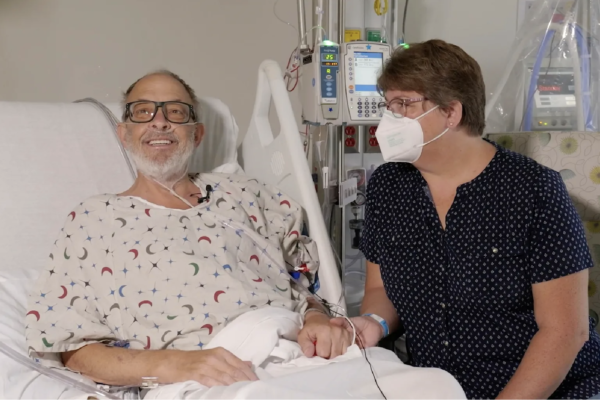
Lawrence Faucette with his wife Ann (Photo: Deborah Kotz/University of Maryland School of Medicine via AP)
Update: Navy Veteran Lawrence Faucette has sadly passed away after complications from the procedure. Our full story: Navy Veteran and Second Recipient of Experimental Pig Heart Transplant Passes Away, Highlighting Challenges in Xenotransplantation
A 58-year-old Navy Veteran has become the second person in the world to receive a genetically modified pig heart transplant. This remarkable achievement offers hope for those facing organ failure and could help alleviate the chronic shortage of human organ donations.
The surgery, which took place at the University of Maryland School of Medicine, was performed to save Lawrence Faucette’s life. Facing near-certain death from heart failure, Faucette was ineligible for a traditional human heart transplant due to pre-existing vascular disease and internal bleeding complications.
Before the procedure, Faucette expressed his optimism, stating his only real hope left is to go with the pig heart, and that at least now he has hope and has a chance.
The first attempt at a pig-to-human heart transplant was carried out by the same Maryland team last year on David Bennett, who survived only two months post-surgery due to various health issues. This time, the patient, Lawrence Faucette, has shown early signs of success. Just two days after the operation, he was able to sit up, share jokes, and breathe without the assistance of supportive devices.
The key to this progress lies in genetically modifying the pig’s heart to make it more compatible with the human immune system. The pig heart, provided by Revivicor in Blacksburg, Virginia, features ten genetic modifications that reduce the likelihood of rejection by the recipient’s body.
The shortage of human organs for transplantation is a persistent problem, with over 100,000 Americans currently on waiting lists for organ transplants. Xenotransplantation, the practice of transplanting animal organs into humans, offers a potential solution to this crisis.
This historic second pig heart transplant marks a significant step forward in the field of xenotransplantation. While more research and trials are needed to ensure the long-term success and safety of such procedures, it holds promise for those who have exhausted other options for life-saving organ transplants.